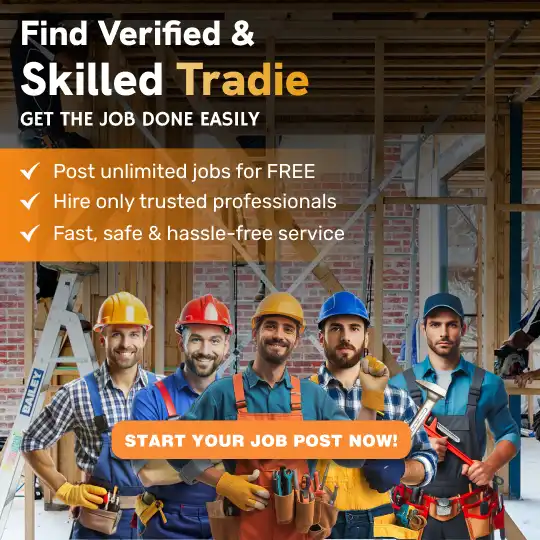How Cross-Skilling Helps Tradies Stay Relevant in Competitive Markets

The world of trades is changing faster than ever before. New tools, modern techniques, and rising customer expectations are reshaping how tradies work. Today, it’s not enough to just know one skill and stick with it. To stay competitive, many professionals are turning to cross-skilling programs for tradies, which allow them to expand their expertise beyond their original trade.
But what exactly is cross-skilling, and why is it becoming so important for tradies? Let’s break it down in simple terms and explore how learning additional skills can give tradies a stronger career, better job opportunities, and long-term growth.
What is Cross-Skilling for Tradies?
Cross-skilling is the process of learning skills outside your main trade. For example, an electrician might pick up basic plumbing, or a carpenter might learn painting and plastering. It’s not about replacing your main skill set; it’s about adding more tools to your toolbox.
Tradies often work on projects where different trades overlap. A plumber might need to understand electrical safety when installing a hot water system, while a builder may need to know how to handle landscaping basics. By cross-skilling, tradies become more versatile and valuable on-site.
Why is Cross-Skilling Important in Competitive Markets?
The trades industry is highly competitive, especially in countries like Australia, where demand for quality work is growing but so is competition among service providers. Clients and employers now prefer tradies who can handle multiple tasks with efficiency.
Here are a few reasons why cross-skilling matters:
-
More job opportunities: A tradie with multiple skills is more likely to get hired or chosen for projects.
-
Cost savings for clients: Customers love hiring one tradie who can do more instead of calling different professionals for each small task.
-
Stronger career growth: With wider skills, tradies can move into higher roles, even start their own businesses.
-
Adaptability: Markets change, and some trades see seasonal dips. Cross-skilling ensures tradies stay employed all year.
The Link Between Cross-Skilling and Career Development
Tradies career development is no longer just about climbing a single ladder in one trade. The industry has become more dynamic, and employers, as well as clients, now value tradies who bring multiple skills to the table. Cross-skilling is the key here. It’s about building a strong base of diverse abilities that help you stand out from the crowd and stay competitive.
Whether you’re an apprentice just stepping into the field or an experienced tradesperson looking to grow, cross-skilling creates fresh career pathways. Instead of being limited to one type of job, you can branch out into new opportunities that allow you to take on more responsibility and higher-paying work.
For example:
-
An electrician who also knows air-conditioning installation can handle a wider range of projects, making them more appealing to both homeowners and contractors.
-
A carpenter with design and project management skills can step into supervisory roles, managing teams and overseeing bigger construction jobs.
-
A plumber who learns green energy systems becomes highly valuable in the growing market for sustainable construction and eco-friendly housing.
This blend of skills not only makes a tradie versatile but also opens doors to leadership positions, long-term contracts with larger firms, or even the chance to launch independent businesses. In short, cross-skilling ensures that tradies don’t just survive in competitive markets but thrive by creating a future-proof career.
Benefits of Cross-Skilling for Tradies
Let’s explore the advantages of investing in skills development in trades:
1. Increased Employability
Employers and contractors want workers who can multitask. A cross-skilled tradie adds extra value to every project, reducing the need to hire multiple workers.
2. Higher Income Potential
More skills mean more services to offer. Tradies can charge higher rates or take on bigger jobs that wouldn’t have been possible otherwise.
3. Job Security
If demand for one trade slows down, a tradie with additional skills can switch to another area without losing work opportunities.
4. Better Problem-Solving
Projects often bring unexpected issues. A cross-skilled tradie can troubleshoot problems more effectively because they understand multiple aspects of construction or repair.
5. Improved Customer Service
Clients prefer professionals who can solve multiple issues in one visit. This builds trust, repeat business, and positive word-of-mouth referrals.
Practical Examples of Cross-Skilling in Action
-
Plumbing + Electrical: Many plumbers now learn basic electrical work for appliances like dishwashers and hot water systems.
-
Carpentry + Design: Carpenters who understand digital design software can provide 3D models of furniture or interiors.
-
Painting + Plastering: Painters who also know plaster repair save clients from hiring two different tradies.
-
Landscaping + Construction: Builders with landscaping knowledge can offer complete outdoor solutions.
These examples show how tradies improving job skills can move beyond the basics and become a one-stop solution.
Cross-Skilling Programs for Tradies
To make cross-skilling easier, there are now structured cross-skilling programs for tradies across Australia. These programs often focus on:
-
Short certification courses: Covering plumbing basics, electrical safety, or green energy systems.
-
Apprenticeship extensions: Adding new trade skills during training.
-
Online learning platforms: Offering flexible courses on tools, safety, and new technologies.
-
Industry workshops: Hands-on training events for experienced tradies.
By enrolling in these programs, tradies can build formal qualifications, which makes them more attractive to employers and customers.
Skills Upgrade Through Technology
Tradies today are working in an industry that is changing faster than ever, thanks to technology. What used to be done with manual tools and paper plans is now supported by digital devices and smart systems. This shift means that learning and adapting to new technology has become an important part of every tradie’s skills upgrade.
Technology is no longer an optional extra, it’s a necessity. Clients expect faster, more accurate work, and employers look for tradies who can handle modern tools and processes. By adding tech knowledge to their toolkit, tradies not only stay competitive but also open themselves up to better jobs and higher-paying opportunities.
Examples include:
-
Using drones for site inspections, which saves time and improves safety.
-
Learning software for blueprint reading and project planning to reduce mistakes.
-
Adapting to smart home installations in electrical jobs, a fast-growing demand in Australia.
-
Using eco-friendly plumbing and construction solutions that meet sustainability standards.
By keeping up with technology, tradies are not just cross-skilling, they’re future-proofing their careers. The ability to blend traditional skills with modern tools ensures they remain valuable in an ever-evolving market.
Challenges in Cross-Skilling and How to Overcome Them?
While cross-skilling has many advantages, tradies may face challenges such as:
-
Time commitment: Taking courses or training while working full-time can be tough.
-
Cost of training: Some certifications require an investment.
-
Balancing skills: It’s important not to lose focus on the main trade.
How to Overcome These Challenges:
-
Take part-time or online courses to balance work and study.
-
Seek government-subsidised training programs.
-
Focus on one additional skill at a time to avoid overwhelm.
-
Join professional networks like TTN (Trusted Tradie Network) to access affordable training resources, mentorship, and peer support.
Tradies Training for a Strong Future
Continuous tradies training is the foundation of career growth. Employers are now actively encouraging their workers to cross-skill because it benefits the whole team. A crew of cross-skilled tradies can complete projects faster, handle emergencies better, and deliver higher-quality work.
Even self-employed tradies can benefit. By upgrading their skills, they can offer complete packages to clients, making them more competitive in local markets.
How Trusted Tradie Network (TTN) Supports Cross-Skilling?
TTN (Trusted Tradie Network) is one example of how professional communities are helping tradies grow. Through TTN, tradies can:
-
Connect with other professionals to share knowledge.
-
Access resources and tips on skills development in trades.
-
Discover workshops and training programs in their area.
-
Build a reputation by showcasing cross-skilled services.
Being part of such a network not only supports learning but also opens up new job opportunities.
The Future of Cross-Skilling in Trades
The trades industry is moving toward versatility. Clients no longer want a tradie who can only do one thing. They want professionals who understand projects from multiple angles. As construction and maintenance needs grow, cross-skilling will no longer be optional, it will be expected.
In the future, tradies who keep learning, upgrading, and diversifying their skills will have the upper hand. From green construction techniques to advanced digital tools, the opportunities for tradies career development are endless.
Final Thoughts
Cross-skilling is no longer just a bonus skill for tradies; it’s becoming a necessity. By learning beyond their main trade, tradies can secure better jobs, earn higher incomes, and future-proof their careers.
Through cross-skilling programs for tradies, ongoing skills upgrade, and consistent tradies training, professionals in the trades industry can remain valuable in a fast-changing market. Communities like TTN (Trusted Tradie Network) make this journey even easier by offering resources, connections, and opportunities.
For tradies, the path forward is clear: keep learning, keep improving, and keep adding new tools to the toolbox. That’s the real secret to staying relevant and successful in today’s competitive market.

